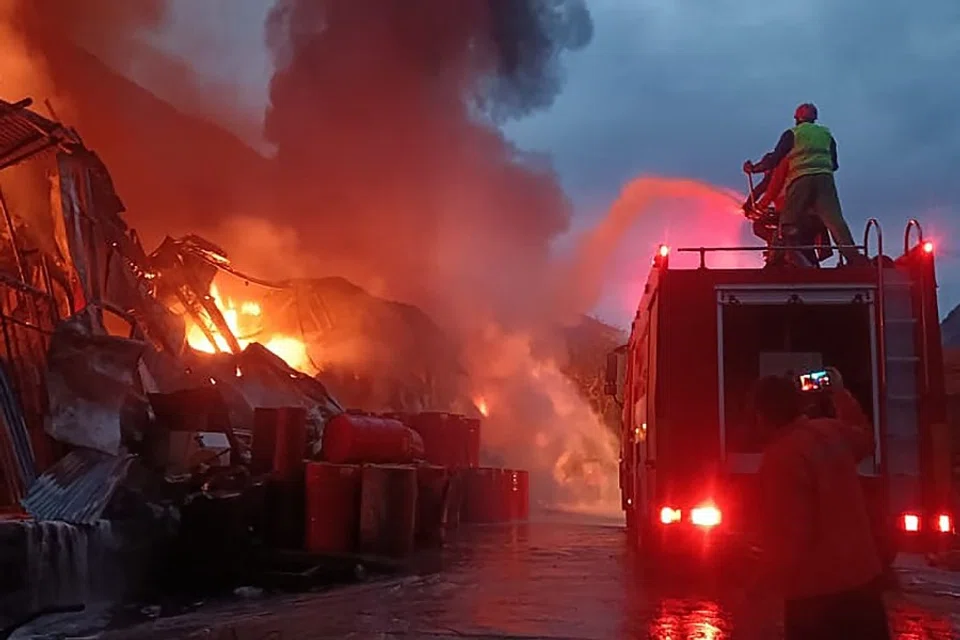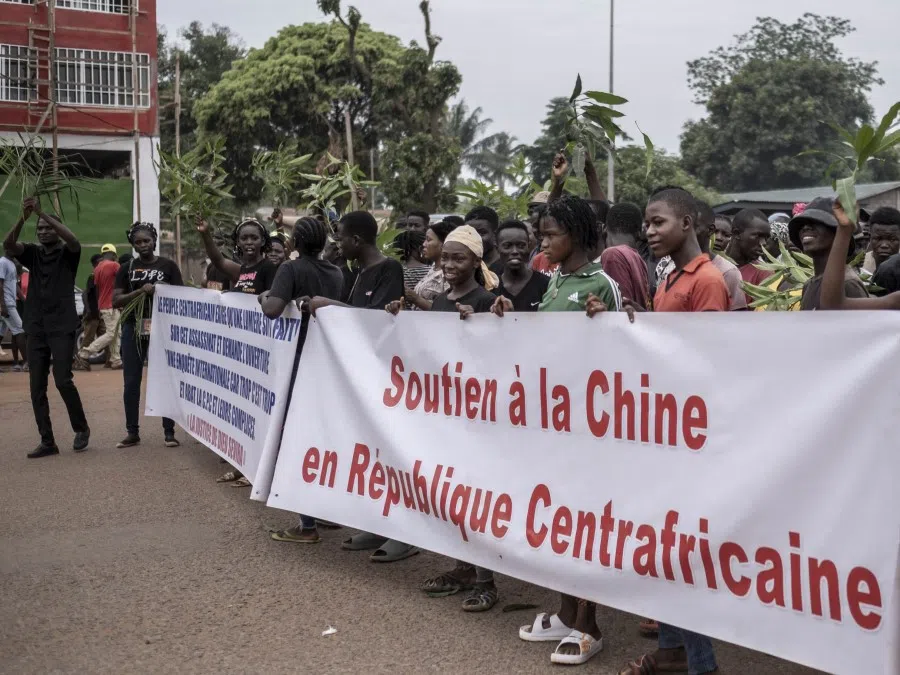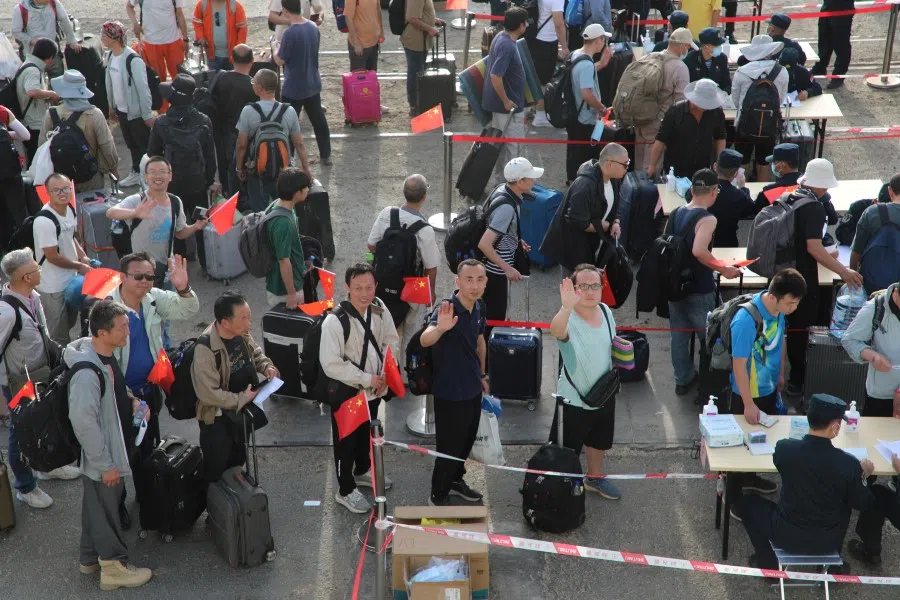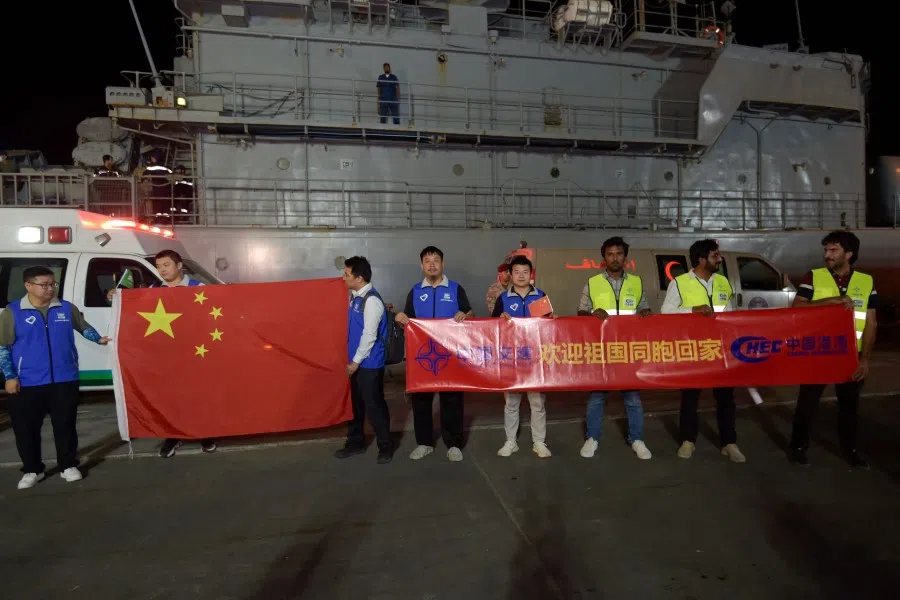China's urgent need to safeguard lives and investments along BRI
China's private security companies, entrusted to protect Chinese companies' investments abroad, especially in the Belt and Road Initiative, are largely unequipped to meet the task. With surging violence against Chinese overseas, which has gotten even more precarious with recent civil unrest and conflicts from Central Asia to the Middle East, can more be done to improve the situation?

The brutal slaying of nine Chinese miners in the Central African Republic (CAR); the assault on a Chinese-managed hotel in Afghanistan carried out by the Islamic State in Khorasan; the bombing of three Chinese educators from the Confucius Institute in Pakistan - all these are stark examples of surging violence against Chinese overseas. Beijing now stands at a critical juncture, confronted with a mounting wave of violence targeting its citizens on foreign soil.
According to Chinese security pundits, this dire situation demands either the professionalisation of the private security sector or an augmentation of the People's Liberation Army (PLA)'s presence overseas, or perhaps even both.
New era of security architecture
In the tumultuous wake of the Cold War's end, and the rise of US-China great power competition, a new era of security architecture is emerging, beckoning a surge in the clamour for mercenaries and private military services. Meanwhile, the US steadily retreats from its prominent military position, assuming a former offshore balancing role and hastening this unfolding phenomenon.
Throughout history, mercenaries have thrived in the preservation of instability, with their actions fueling conflicts for personal gain. A vivid illustration of this lies in the expanding presence of Russian mercenaries, with the Wagner Group spearheading their charge from Mali to Sudan. This is the same geographical region where Chinese private security companies (PSCs) are set to protect Chinese interests.
...guarding the New Silk Road is entrusted to less than 20 leading Chinese private security firms...

Beefing up PSCs to safeguard New Silk Road
The increasing uncertainty in foreign lands and the preservation of a modicum of the decades-old principle of non-interference, are pushing Beijing towards privatising the monopoly on force, at least with ''Chinese characteristics''.
Since President Xi Jinping called for strengthening military training and combat readiness by 2027, the PLA still lacks veterans despite undergoing significant reforms. Hence, the Chinese PSCs are a convenient proxy to fill the Belt and Road Initiative (BRI) security requirements.
Yet, the limitations of the Chinese private security sector are exemplified by the fact that guarding the New Silk Road is entrusted to less than 20 leading Chinese private security firms, even though there are 10,000 such firms in the Chinese internal security market consisting of more than 3 million operators.
It is not only a matter of professionalising the PSCs, but the limited interests of state-owned enterprises (SOEs) to pay for such professional security services. The echo of the Wolf Warrior 2 movie where being Chinese is a sufficient shield against incoming threats is still very much alive in mainland China.
With some notable exceptions in the maritime anti-piracy missions, the Chinese PSCs are not armed and rely on locally contracted armed personnel.
China's entanglement in local crises could increase
Since its inception in 1993, the private security industry in China has largely been shaped by individuals with a background in security operations. The Chinese PSCs, established and guided by former security officers, primarily draw their personnel from the ranks of the PLA, People's Armed Police, and the police force.
In 2019, a significant development occurred with the amendment of the law, surpassing previous restrictions and extending the scope of safeguarding Chinese personnel and infrastructure beyond domestic borders.
Nonetheless, the recent upsurge of violence directed at Chinese workers abroad pushes Beijing towards enhancing professionalisation and expanding the capabilities of its PSCs, which currently find themselves in a legal grey area regarding the authorisation to bear arms in foreign territories.
With some notable exceptions in the maritime anti-piracy missions, the Chinese PSCs are not armed and rely on locally contracted armed personnel. For instance, a Shanghai-based PSC that operates in Pakistan employs a few Chinese security managers who serve as intermediaries with a local PSC. The Chinese workers are situated in a gated compound that is protected by towers equipped with machine guns and managed by the local PSC.
...the call for professionalisation and an expanding appetite for risk could force the Chinese PSCs to cross the threshold with unintended consequences, including Beijing's entanglement in local crises.

While the world is re-experiencing the nefarious consequences and effects of the armies for hire, the Chinese PSCs are not Blackwater, an American private military company now under a new name and management, nor the Wagner Group. The Chinese PSCs' passive stance in guarding infrastructure and people against criminal or terrorist attacks, is a case in point.
Nevertheless, the call for professionalisation and an expanding appetite for risk could force the Chinese PSCs to cross the threshold with unintended consequences, including Beijing's entanglement in local crises.
Better training of personnel required
From an efficiency standpoint, with some notable exceptions in the top-tier security firms, the majority of the PSCs based in China have no international exposure and lag behind their foreign counterparts. They grapple with the challenge of sourcing competent Chinese contractors and often resort to hiring local armed personnel.
A stumbling block in the evolution of Chinese PSCs lies in the training of personnel equipped with essential local knowledge and security expertise. Furthermore, the scarcity of lucrative contracts hampers the quality of security provisions.
Chinese workers are secluded in gated compounds with minimal interaction with the locals, especially in the extractive sector from Kazakh oil, Turkmen gas, to Tajik gold mines.
In Central Asia, Beijing is already learning from its previous mistakes and is adapting the BRI's crisis management strategy. It matches the role of PSCs with a reduced public and media footprint, keeping the presence of Chinese investments far from the spotlight. Chinese workers are secluded in gated compounds with minimal interaction with the locals, especially in the extractive sector from Kazakh oil, Turkmen gas, to Tajik gold mines.
Nevertheless, from South Asia to Africa, the escalation of civil unrest and small-scale conflicts presents a complex challenge, impeding progress in effective threat assessment and risk mitigation.

To address these risks, it is anticipated that Beijing will enhance regulations and scrutiny of Chinese PSCs in order to foster the emergence of professional Chinese PSCs.
Considering the increasingly high profile and bad name of Wagner, there is not much space for Russian operators to protect the BRI, something that was under discussion just a few years ago.
At the same time, the overlapping interests in the extractive industry in Africa, one of the leading sources of income for the Wagner Group, leaves open the question of the cooperation or confrontation of the Chinese PSCs with their Russian counterparts.
Considering the increasingly high profile and bad name of Wagner, there is not much space for Russian operators to protect the BRI, something that was under discussion just a few years ago. And on the flip side, if confrontation is anticipated, it will be about the control of natural resources which will take place far from the Kremlin and Zhongnanhai walls of power.
Xi Jinping's mention of the necessity of being prepared to deal with worst-case scenarios, and being ready to withstand "high winds, choppy waters, and even dangerous storms" during his recent address to the National Security Commission, indicates that Beijing is seriously evaluating the potential challenges in the global security landscape.
Nevertheless, besides Beijing and Moscow's ''no-limits'' partnership, the potential for local violent incidents is still of key concern, as boots on the ground are deployed in a region where communication discrepancies and conflicting local interests could undermine national objectives.


![[Big read] When the Arctic opens, what happens to Singapore?](https://cassette.sphdigital.com.sg/image/thinkchina/da65edebca34645c711c55e83e9877109b3c53847ebb1305573974651df1d13a)


![[Video] George Yeo: America’s deep pain — and why China won’t colonise](https://cassette.sphdigital.com.sg/image/thinkchina/15083e45d96c12390bdea6af2daf19fd9fcd875aa44a0f92796f34e3dad561cc)